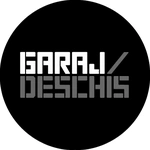Big collective housing ensembles where built in Romania since 1960s. As houses for all, they were radically enacting the modernist and socialist utopia. But life didn’t followed planning and utopia never materialized. Its derailment was in fact a chance for the inhabitants to step in and transform the common spaces through collective practices of care and repair. Utopia was tamed and the ensembles became neighbourhoods. Designed as a “new town” of micro-rayons at the outskirts of Bucharest, Drumul Taberei neighbourhood developed a situated pattern of collective practices, making it an ideal case study for the research and activation of “latent” urban commoning (De Angelis, 2017) in the post-socialist context.
Literally opened since 2020 in a former garage at the ground floor of a collective housing block in Drumul Taberei neighbourhood, the OPEN Garage is a research laboratory and community equipment. Following locals’ example which transforms their garages into commercial, services, hobbies or meeting spaces, the project works as a “supplementary room” for the inhabitants and researchers alike. The project grew through cultural activation, applied education and action research. First, a Garage Library for kids was set up from donations, followed by a series of DIY workshops with the library users. Next, the space programing and research methods were expanded by a diverse team. Furthermore, a Garage School involved groups of students from landscape and sociology engaging in fieldwork research of the area. An active summer and autumn followed, like organizing near the Garage a series of street events, exhibiting the research’ results in the Garage, releasing a Map of Collective Practices and launching a series of Video Documentaries communicating research findings. The research evidenced the inhabitants’ strong attachment to their neighbourhood and the key role played by the collective practices of managing the common spaces to express and maintain this attachment.
Although small in scale, frail in sustainability and basic in organization, the OPEN Garage is the only cultural space of micro-rayon 7, or The Loop as locals call it. Research-driven, interdisciplinary and open for participation, the project tests and runs a situated version for a “small but many” type of networked community equipment, situated in a neighbourhood chronically lacking community spaces, under-planned and further enclosed by an exacerbated individualism and radical privatization.
OPEN Garage is both a research project and a physical space for the community. The on-going research is addressing the dominant depreciative public narrative over the collective practices for managing the common spaces of proximity in the big housing estates. Bringing research-based evidence that values these practices’ role in resourcing the community life, the research acknowledges them as local answers to the ecological, social and political city’ crisis. In the same time, OPEN Garage seeks to plug into the network of formal and informal spaces of the neighbourhood, seeking to articulate and support local practices and actors, while proposing programs and creating spaces for participation, which are now lacking in this type of neighbourhoods. This research-driven initiative and spatial-based narrative pleads for a situated type of community equipment, specific to the collective housing estates built in socialism, which can be replicated across the city, the country and the region.
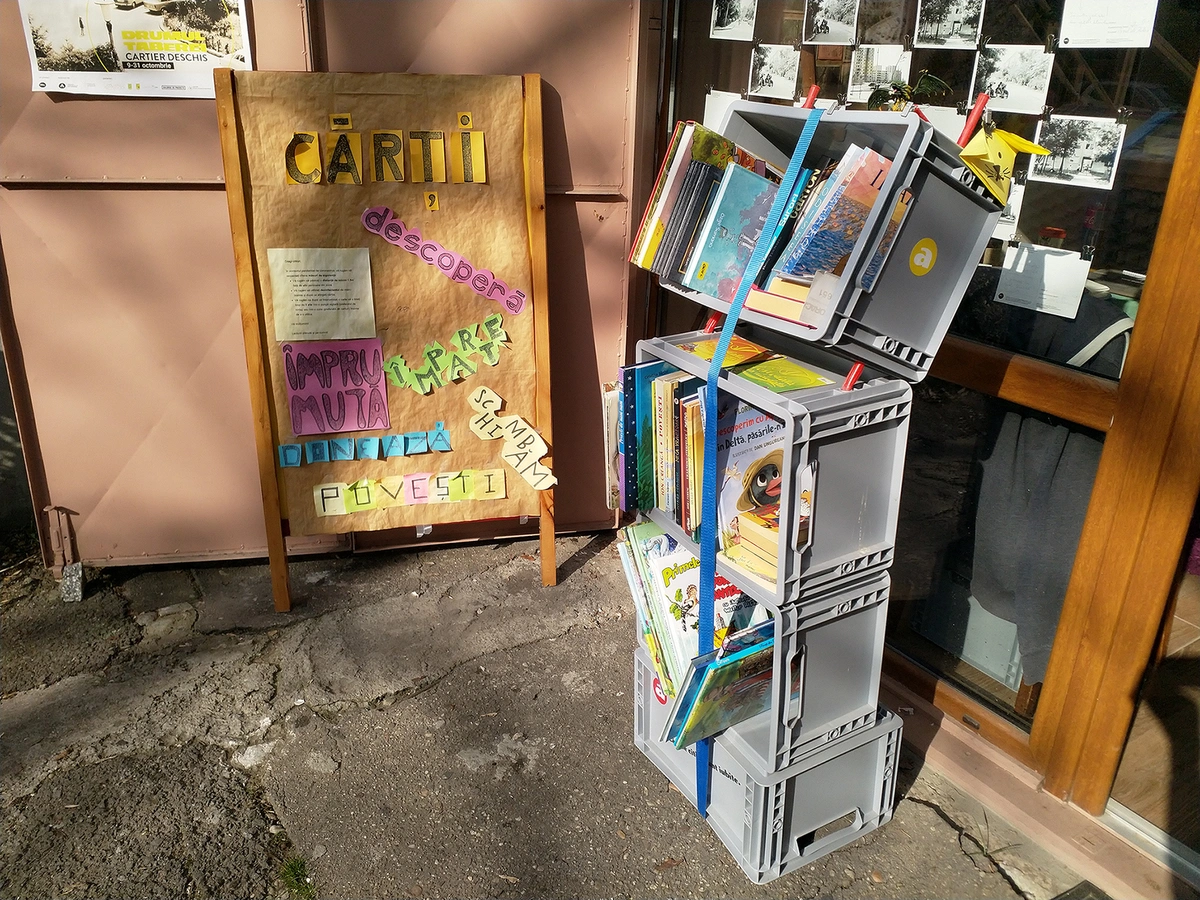
Garage Library - losing 30% of their spaces in the last 30 years, public libraries in Bucharest are under constant treat. With just 2 small libraries, Drumul Taberei has a dire need for any book-driven space. The Garage Library is the only one in this part of the neighbourhood offering a small collection for children and youth. The informal library grew from initial personal donations, through neighbours, friends and publishing house contributions, articulating a small community of readers.
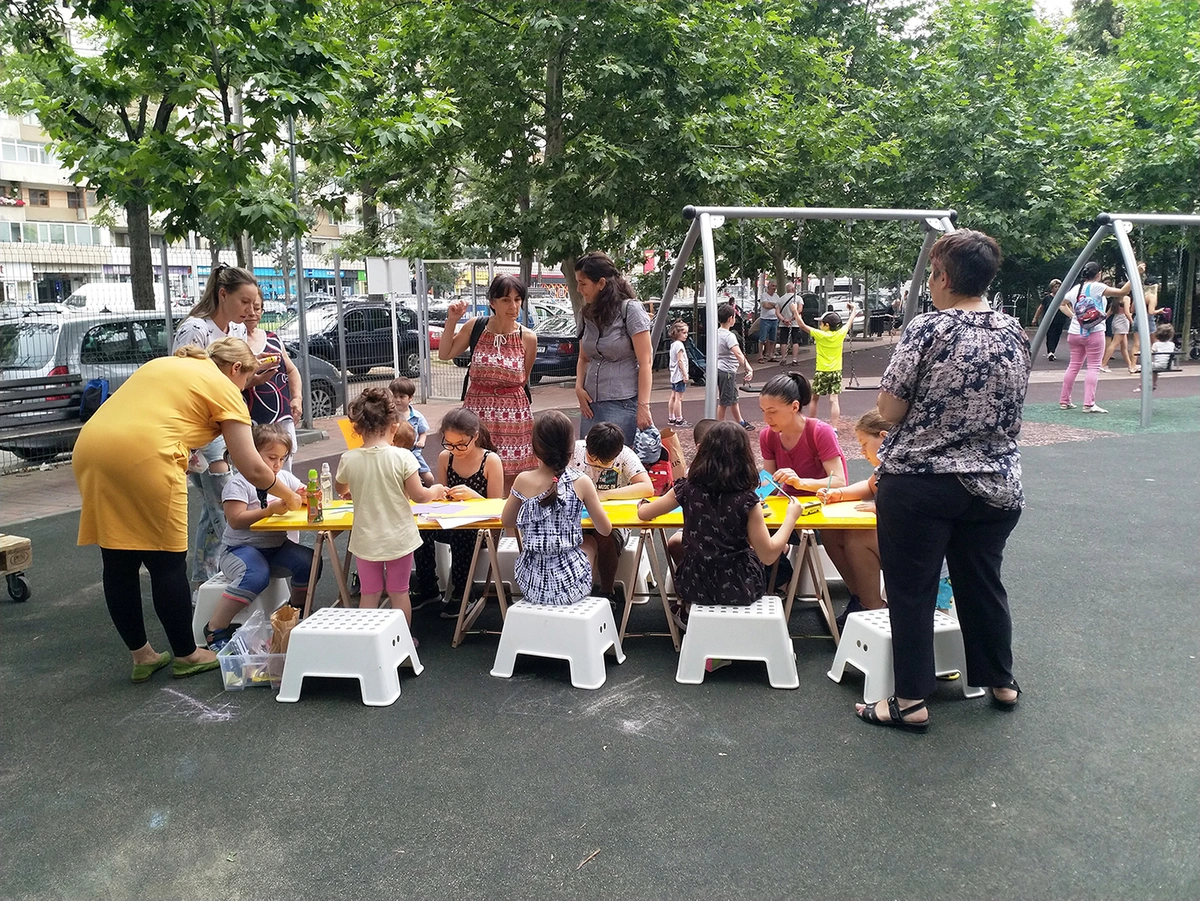
Garage Workshops – involving the library users, the Garage hosted as series of educational, DIY and mapping workshops. Teaming up with landscape designers and librarians, the topics and methods expanded. Gaining confidence and opening to a wider audience, the activities spread out of the Garage. Several Planting Workshops took place in the nearby community gardens and a series of Stories Workshops were hosted by a nearby playground, reaching towards the community beyond the book exchange.
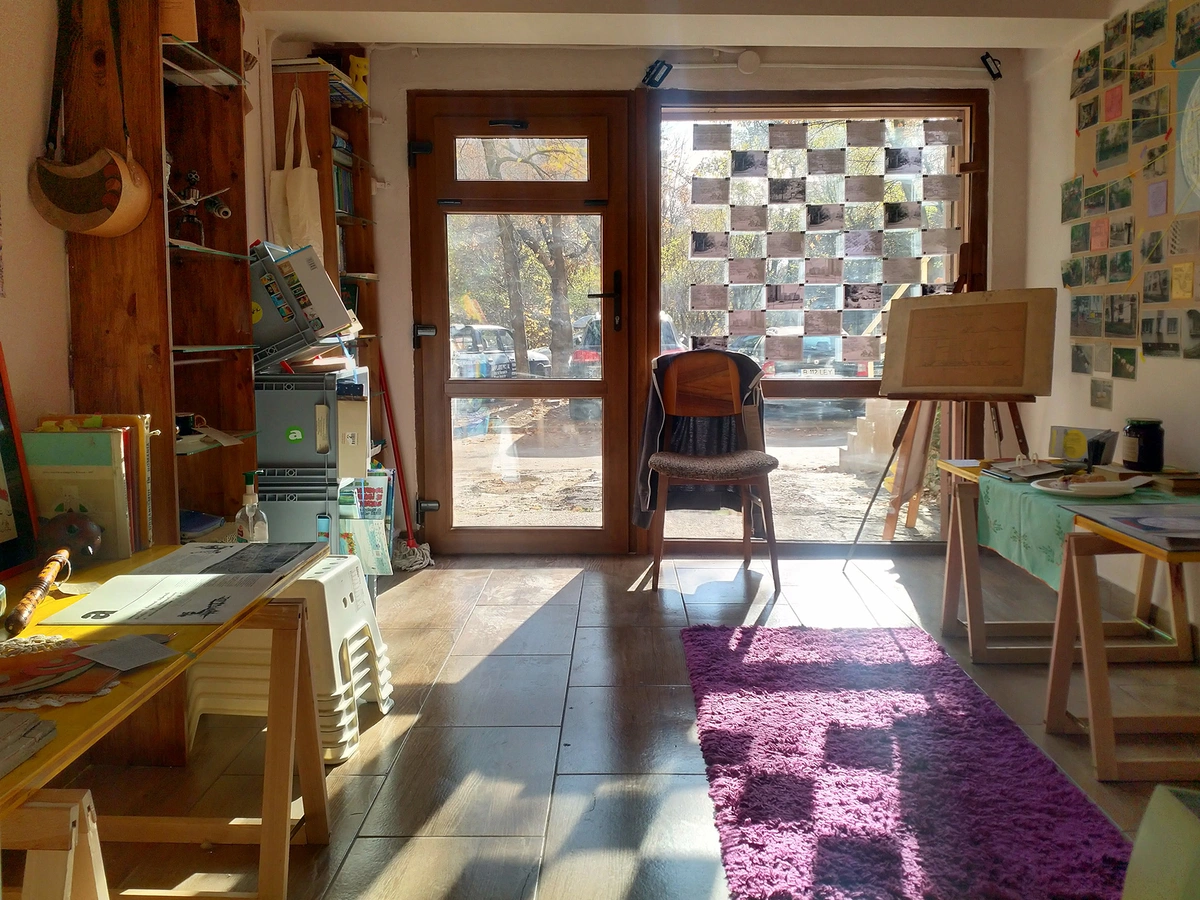
Research from the Garage – using qualitative methods, like observation, interview and mapping, an interdisciplinary team engaged in fieldwork research of the area, focusing on 3 topics: the initial project, the inhabitants reaction to it and the their emerging collective practices. The research process and its products were exhibited in the Garage through a series of small installations containing objects, photos, texts, videos and maps, together with related works by invited local artists.
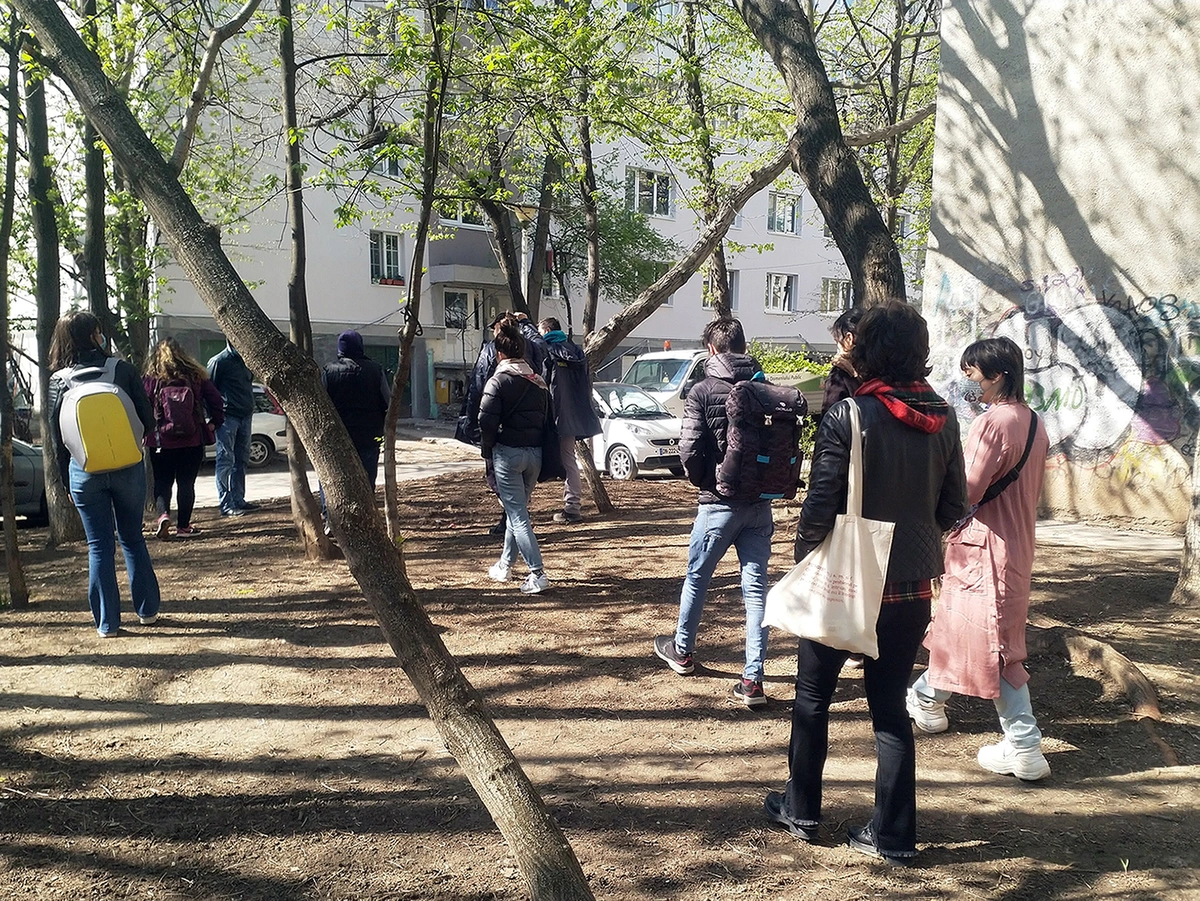
Garage School – the research conducted by the project’s team had an applied education component, including students from the MA level in Anthropology (SNSPA) and 1st year in Landscape Design (USAMV). Taking the Garage as a starting point, the participants engaged in fieldwork qualitative research of the nearby area. They focused on the collective practices developed by the inhabitants by applying interdisciplinary methods like participant observation, creative interview and relational mapping.
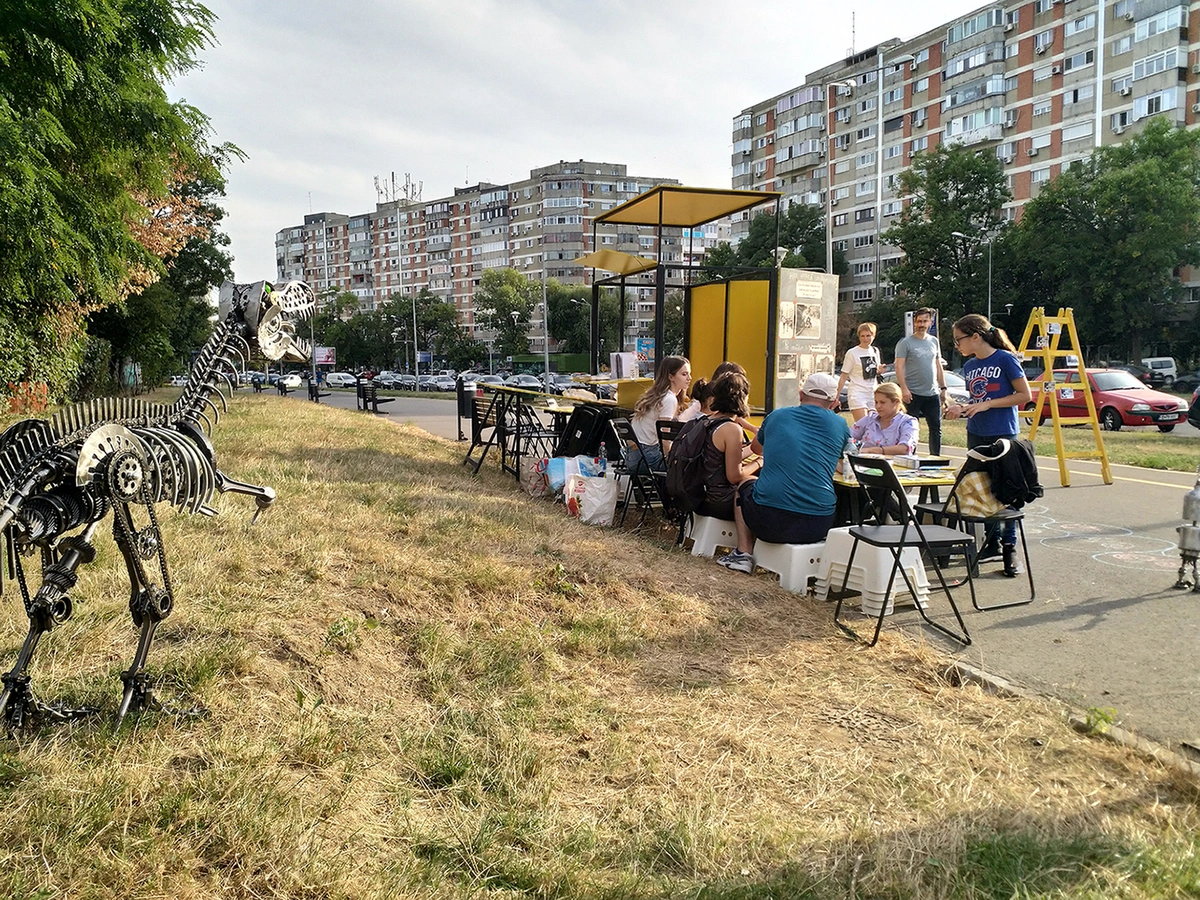
Related Events – following on the positive reaction to the workshops organized in and out of the Garage, a 2 day event was organized on The Loop – a busy nearby street. Using the Trailer for Research and Activation (RCA, produced by studioBASAR in 2016) the event brought the well-known Street Delivery festival from its traditional central location to the neighbourhood. Through workshops, exhibitions and games the event exported Garage’ activities and created a social space for the community.
OPEN Garage was initiated in 2020 by Alex Axinte (architect), part of his practice-based PhD research at the University of Sheffield. Since May 2021, after receiving a grant from the Romanian Order of Architects, the project’s team expanded with: Iris Șerban (anthropologist), Bogdan Iancu (anthropologist), Anca Niță (sociologist), Ileana Szasz (director), Diana Culescu (landscape designer), Ioana Tudora (architect), Ioana Irinciuc (librarian). The research included also an applied education program for students, developed in partnership with the University of Agronomy and Veterinary Medicine (USAMV) and the National School of Political Science and Administration (SNSPA). The activities and events by the Garage were developed through partnerships with NGOs and local public administration institutions, like: Romanian Landscape Association Bucharest (ASoP), VIRA Association, Salonul de Proiecte, Street Delivery, City Hall Sector 6 through the European Cultural Center Sector 6.
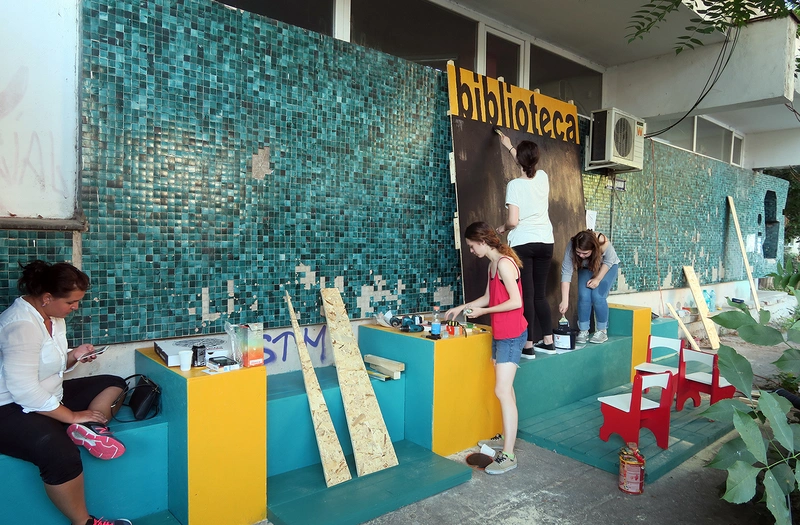
City School – was an independent program of applied education, initiated and coordinated by studioBASAR between 2015 and 2017, as a precedent in the local context. City School involved tutors and students from architecture, sociology and landscape, which collaborated with inhabitants towards a spatial transformation. Through qualitative research, participative design, self-construction and programing, the project transformed the interior and exterior of 2 public libraries from Bucharest.
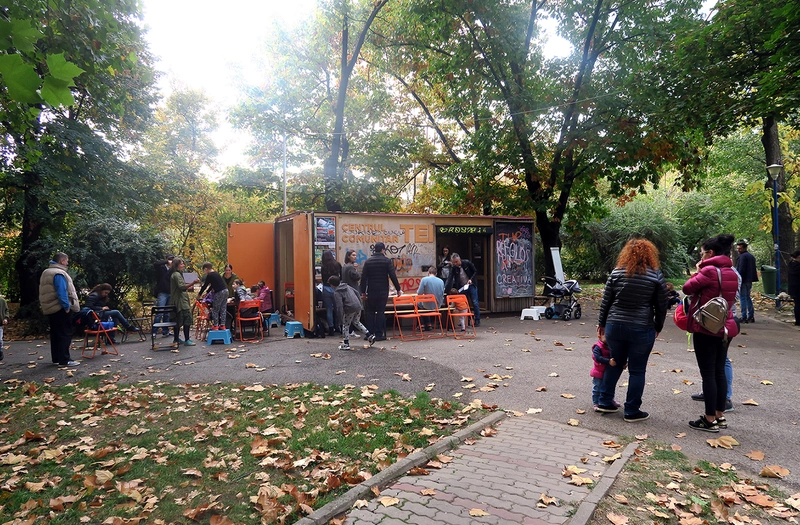
Tei Community Centre – was a community space initiated by “Lacul Tei” Civic Group, CeRe and studioBASAR between 2017 and 2020. The Centre was a civic space, coordinated by an informal group of concerned citizens. Hosted in a container, set in a public park, the Centre was a premiere for Bucharest. For several years, it hosted a wide range of educational, civic and community activities, opening its space and programs to a wide range of actors and partners from the neighbourhood and city level.
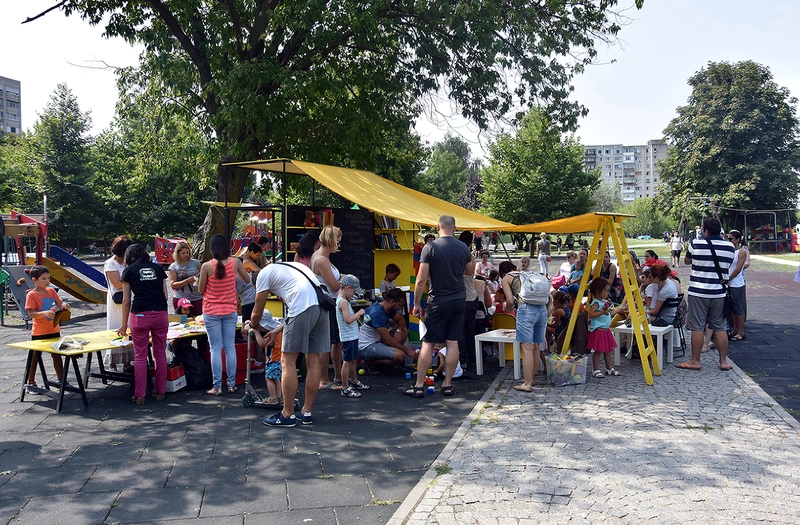
The Trailer for Research and Activation – is a pop-up mobile pavilion designed by studioBASAR in 2016. The Trailer is shared free of charge among civic, cultural, ecologic and educational organizations which lacks place-making means. Since its production, the trailer supported around 60 public events set mostly in Bucharest collective housing neighborhoods. The Trailer supported also the OPEN Garage project to expand and export its activities and research method into the nearby public space.
